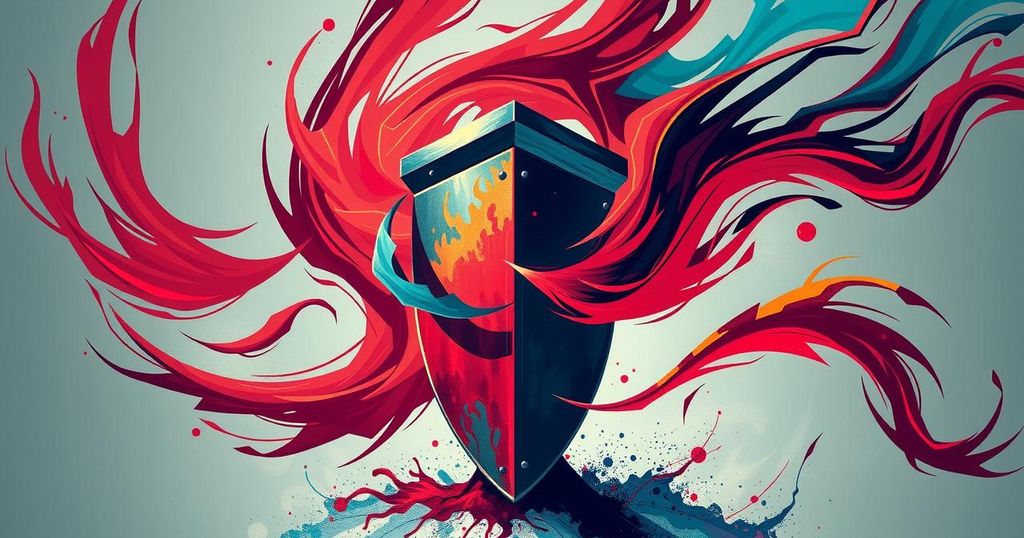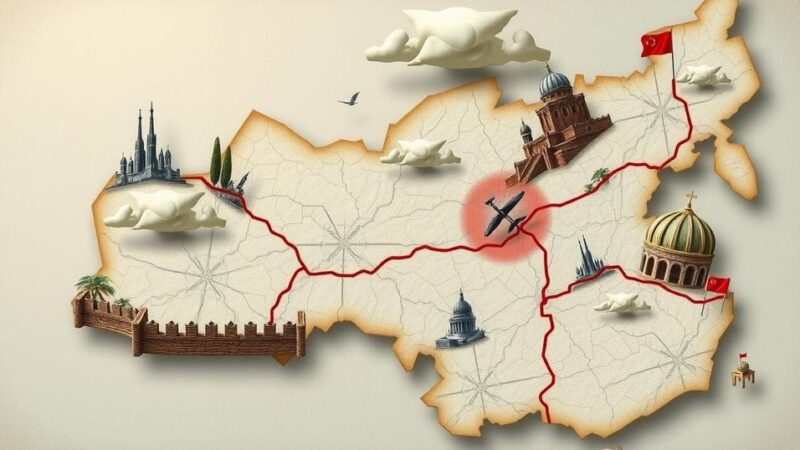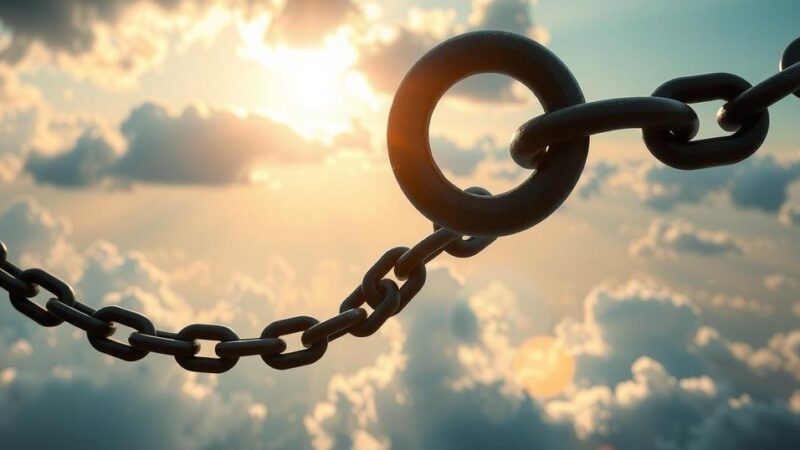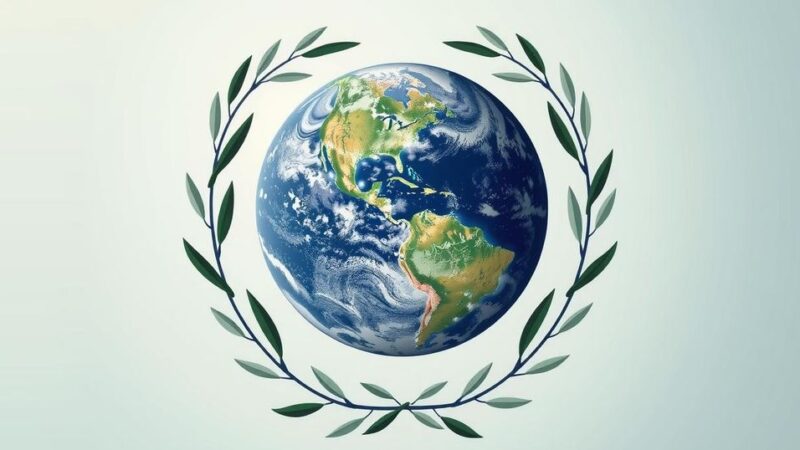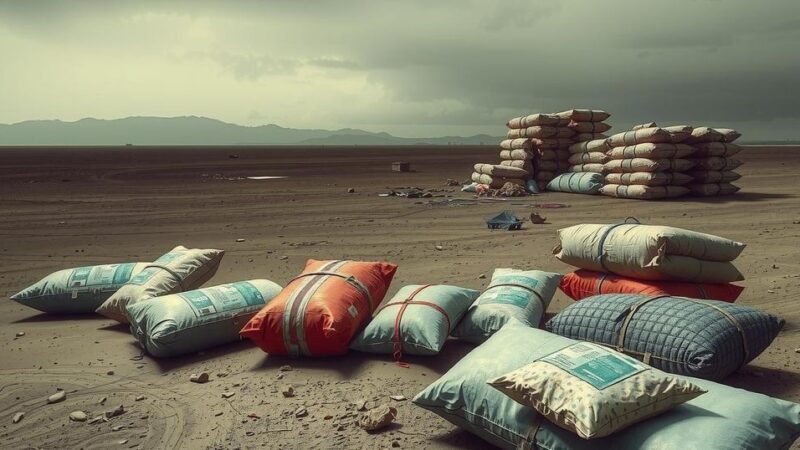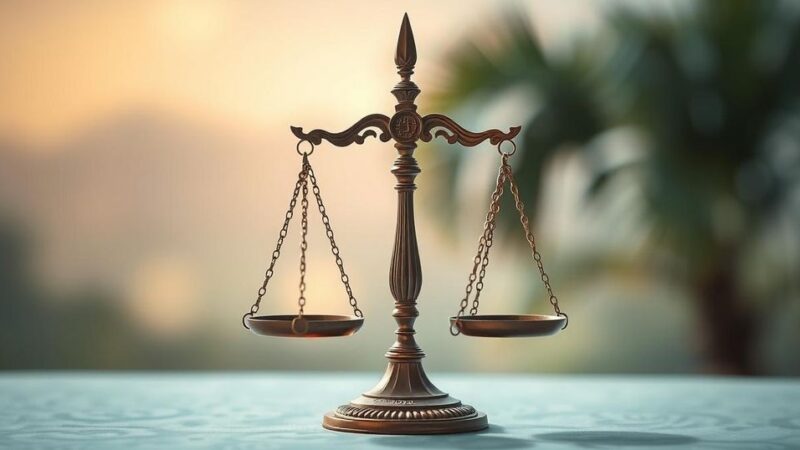DR Congo President Félix Tshisekedi has vowed a strong response to M23 rebels who have taken control of Goma. In a national address, he called for unity among Congolese citizens and criticized international inaction amid the ongoing humanitarian crisis. The conflict has displaced over 500,000 people, leading to severe shortages of resources. Regional tensions rise as South Africa and Rwanda clash over the situation, with diplomatic efforts becoming increasingly urgent.
President Félix Tshisekedi of the Democratic Republic of Congo has reiterated his commitment to restoring governmental authority in the eastern region, particularly in Goma, which has fallen under the control of the Rwanda-supported M23 rebels. In a national address, he declared a “vigorous and coordinated response” against what he termed “terrorists.” Furthermore, he criticized the international community for its inaction amidst the escalating security crisis in the region.
The ongoing offensive by M23 rebels has sparked warnings of an impending humanitarian crisis, prompting international calls for an end to the conflict. During his recent address, President Tshisekedi urged all Congolese citizens to unite and support the armed forces in their efforts to reclaim lost territory. He emphasized, “Be sure of one thing: the Democratic Republic of Congo will not let itself be humiliated or crushed. We will fight and we will triumph.”
The conflict has displaced approximately 500,000 individuals, further exacerbating an already critical humanitarian situation, according to United Nations reports. The ongoing fighting has resulted in Goma’s infrastructure being compromised, as citizens experience outages of electricity, water, and food scarcity. Tensions have escalated following a virtual summit involving East African leaders, which Tshisekedi chose to skip, where calls for peaceful resolutions were made.
In a response to the escalating conflict, Tshisekedi acknowledged the significant contributions of Southern African Development Community (SADC) soldiers and UN forces, mourning the loss of thirteen South African peacekeepers in the violence. This situation has strained relations between South Africa and Rwanda, notably with President Kagame of Rwanda indicating readiness for confrontation if necessary, challenging claims regarding M23 rebels’ involvement in the attacks.
Angola has urged immediate talks between Congolese and Rwandan leaders in Luanda, attempting to mediate amidst rising tensions. This call comes as Tshisekedi engaged in discussions regarding the continuation of peace efforts led by the East African Community (EAC) and Angola. Previous initiatives for resolving the conflict have faced setbacks, raising concerns over finding a sustainable solution to the ongoing crisis.
The situation in the Democratic Republic of Congo has been plagued by instability and violence, particularly in the eastern regions where rebel groups, notably the M23, operate with alleged support from Rwanda. These groups have engaged in offensives against government forces, prompting significant humanitarian concerns. The international community has been criticized for its perceived inaction, as violence has led to mass displacements and severe shortages of essential resources for the affected populations. Regional political dynamics, especially involving neighboring states, further complicate the conflict resolution efforts.
In conclusion, President Félix Tshisekedi’s vow to combat the M23 rebels signifies a crucial response to the escalating violence in the eastern DRC. The humanitarian crisis, exacerbated by recent conflicts, calls for immediate attention from both national and international actors. While Tshisekedi calls for unity among Congolese citizens and highlights international support, the future remains uncertain as regional tensions with Rwanda escalate. Effective diplomatic engagement will be essential for achieving long-term stability in the region.
Original Source: www.bbc.com

